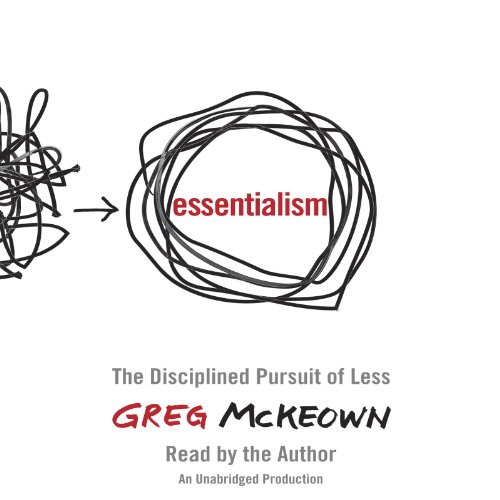
Essentialism, The Disciplined Pursuit of Less, by Greg McKeown, is a book we read recently in the North America/APAC sales team. I think in the spirit of Essentialism I’ll only comment on three points that particularly spoke to me in this book.
Everything you say “yes” to requires saying “no” to other things. There is simply no deciding “I’ll try to do everything.” Well, you can decide this, but to do so results in burnout, fatigue, and lack of progress – what McKeown calls “a millimeter of progress in a million different directions” a number of times in the book.
This is a hard lesson for me, because I hate hearing about limits. I identify with Boxer the horse (cited in Essentialism, and a character created by George Orwell in Animal Farm, whose “answer to every setback and every problem is ‘I will work harder'” (pg. 41) I tend to believe if I just worked harder I could do it all. The book Getting Things Done by David Allen provides a great set of systems for being efficient, and it’s been influential to me. But sometimes I fear that idea of getting ten minute tasks out of the way without stopping to sort them presumes you’re not always drowning in ten minute tasks.
There are a precious few things that are worth doing by a surprisingly large factor. In other words, the benefit to focusing better on the essentials is not just that you might get five times the benefit from focusing on the 20 percent that yields the most results; McKeown seems to be suggesting that the benefit is actually even higher than that:
The top software developers are more productive than average software developers not by a factor of 10X or even 100X or even 1,000X but by 10,000X.
Nathan Myhrvold, Microsoft Corporation (as told to Greg McKeown) (pg. 47)
Maybe top account managers aren’t more effective than average ones by that much of a margin. McKeown qualified this statement by saying it might be an exaggeration. I think it’s actually possible when you consider not only metrics like code production or code that passes QA the first time but the efficiency of better code – the improved utilization of resources on large systems. And I think this lesson transposes to a number of fields of human endeavor.
Without a clear vision, organizations perish. McKeown touches on the problem of mission statements. Most (even those masquerading as “vision statements,” as if a new label makes it better) are unobtainable, vague, or both. But a clear vision comes with a cost, which is why more leaders don’t articulate them: failure is obvious. So it takes courage to state an achievable objective. But without that, “people pursue the things that advance their own short-term interests, with little awareness of how their activities contribute to (or in some cases derail) the long-term mission of the team as a whole.” (pg. 123)
And that’s assuming anything gets done at all. Impossible objectives, objectives which multiply, or both can simply paralyze a team.
My only two criticisms of the book are – like all books of this kind, it could be shorter (perhaps that’s ironic). And there is one anecdote about an executive who has empowered herself to – do nothing all weekend, every weekend. That sounds attractive, but that also sounds a bit like burnout – if you sleep a lot every weekend because you work so hard, when do you live? But this is a small quibble – the overall message of the book is very positive about setting boundaries for work so as to be able to live the rest of your life.